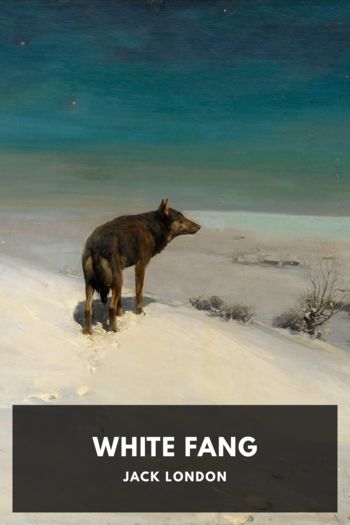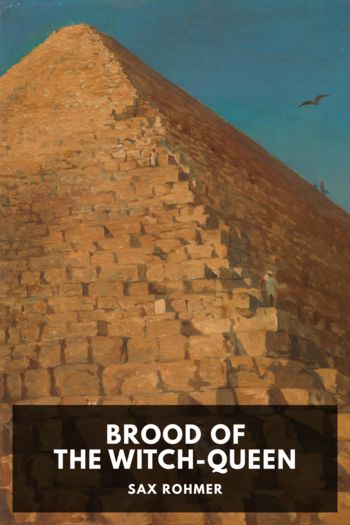Short Fiction - Robert E. Howard (the reading list TXT) 📗

- Author: Robert E. Howard
Book online «Short Fiction - Robert E. Howard (the reading list TXT) 📗». Author Robert E. Howard
It was octagonal in shape, and the great dome up to which the lofty ceiling curved obviously was cunningly pierced, for the chamber was much better lighted than the hall which led to it. At the farther side of the great room there rose a dais with broad lapis-lazuli steps leading up to it, and on that dais there stood a massive chair with ornate arms and a high back which once doubtless supported a cloth-of-gold canopy. Conan grunted explosively and his eyes lit. The golden throne of Alkmeenon, named in immemorial legendry! He weighed it with a practised eye. It represented a fortune in itself, if he were but able to bear it away. Its richness fired his imagination concerning the treasure itself, and made him burn with eagerness. His fingers itched to plunge among the gems he had heard described by storytellers in the market squares of Keshia, who repeated tales handed down from mouth to mouth through the centuries—jewels not to be duplicated in the world, rubies, emeralds, diamonds, bloodstones, opals, sapphires, the loot of the ancient world.
He had expected to find the oracle-effigy seated on the throne, but since it was not, it was probably placed in some other part of the palace, if, indeed, such a thing really existed. But since he had turned his face toward Keshan, so many myths had proved to be realities that he did not doubt that he would find some kind of image or god.
Behind the throne there was a narrow arched doorway which doubtless had been masked by hangings in the days of Alkmeenon’s life. He glanced through it and saw that it let into an alcove, empty, and with a narrow corridor leading off from it at right angles. Turning away from it, he spied another arch to the left of the dais, and it, unlike the others, was furnished with a door. Nor was it any common door. The portal was of the same rich metal as the throne, and carved with many curious arabesques.
At his touch it swung open so readily that its hinges might recently have been oiled. Inside he halted, staring.
He was in a square chamber of no great dimensions, whose marble walls rose to an ornate ceiling, inlaid with gold. Gold friezes ran about the base and the top of the walls, and there was no door other than the one through which he had entered. But he noted these details mechanically. His whole attention was centered on the shape which lay on an ivory dais before him.
He had expected an image, probably carved with the skill of a forgotten art. But no art could mimic the perfection of the figure that lay before him.
It was no effigy of stone or metal or ivory. It was the actual body of a woman, and by what dark art the ancients had preserved that form unblemished for so many ages Conan could not even guess. The very garments she wore were intact—and Conan scowled at that, a vague uneasiness stirring at the back of his mind. The arts that preserved the body should not have affected the garments. Yet there they were—gold breastplates set with concentric circles of small gems, gilded sandals, and a short silken skirt upheld by a jeweled girdle. Neither cloth nor metal showed any signs of decay.
Yelaya was coldly beautiful, even in death. Her body was like alabaster, slender yet voluptuous; a great crimson jewel gleamed against the darkly piled foam of her hair.
Conan stood frowning down at her, and then tapped the dais with his sword. Possibilities of a hollow containing the treasure occurred to him, but the dais rang solid. He turned and paced the chamber in some indecision. Where should he search first, in the limited time at his disposal? The priest he had overheard babbling to a courtesan had said the treasure was hidden in the palace. But that included a space of considerable vastness. He wondered if he should hide himself until the priests had come and gone, and then renew the search. But there was a strong chance that they might take the jewels with them when they returned to Keshia. For he was convinced that Thutmekri had corrupted Gorulga.
Conan could predict Thutmekri’s plans from his knowledge of the man. He knew that it had been Thutmekri who had proposed the conquest of Punt to the kings of Zembabwei, which conquest was but one move toward their real goal—the capture of the Teeth of Gwahlur. Those wary kings would demand proof that the treasure really existed before they made any move. The jewels Thutmekri asked as a pledge would furnish that proof.
With positive evidence of the treasure’s reality, the kings of Zembabwei would move. Punt would be invaded simultaneously from the east and the west, but the Zembabwans would see to it that the Keshani did most of the fighting, and then, when both Punt and Keshan were exhausted from the struggle the Zembabwans would crush both races, loot Keshan and take the treasure by force, if they had to destroy every building and torture every living human in the kingdom.
But there was always another possibility: if Thutmekri could get his hands on the hoard, it would be characteristic of the man to cheat his employers, steal the jewels for himself and decamp, leaving the Zembabwan emissaries holding the sack.
Conan believed that this consulting of the oracle was but a ruse to persuade the king of Keshan to accede to Thutmekri’s wishes—for he never for a moment doubted that Gorulga was as subtle and devious as all the rest mixed up in this grand swindle. Conan had not approached the high priest himself, because in the game





Comments (0)